GCC future in tatters as UAE-Saudi alliance fades
The future of the Persian Gulf Cooperation Council (GCC) is under the worst threat ever as relations between key members, Saudi Arabia and the UAE, are increasingly becoming hostile.
Last week, the UAE bitterly blocked a decision by the OPEC+ alliance of oil-producing countries to increase global oil supply, with Abu Dhabi saying that the deal, put together by Saudi Arabia and Russia, was “unfair to the UAE”.
The row marked the latest episode in the growing clash of interests between Mohammed bin Zayed (MBZ) and Mohammed bin Salman (MBS), crown princes and de facto leaders of Abu Dhabi and Riyadh, respectively.
The GCC, which consists of the UAE, Saudi Arabia, Bahrain, Kuwait, Oman and Qatar, was set up 40 years ago, after the Islamic Revolution of Iran, with the aim of confronting the Iranian role in the region.
In the last two decades, the six countries created a common market with a common external tariff that boosted intra-GCC trade in goods. However, with the two regional powers pursuing their own interests at the expense of the others, the alliance and its shared economic interests are faced with serious challenges.
The intra-GCC competition, analysts say, could lead to increased ties with the other regional countries, including Iran, which has close relations with other Arab states including Iraq, Syria and Lebanon, in addition to Qatar.
MBS and MBZ, who is widely recognized as the former's ex-mentor, have long been seen as the region’s power couple, pressuring countries they deemed out of line and invading others they deemed a threat, but their latest clash has further pushed them away from each other.
The former close friends, according to reports, have spoken only once since US President Donald Trump’s era came to an end in January.
“You can’t avoid it with OPEC,” said Saudi government advisor Ali Shihabi. “When you have more than 20 people in the room and you quarrel with your wife, you can hardly hide it.”
The kingdom has “suffered from 50 years of lethargy in terms of economic policy and dynamism and now has to play catch-up,” Shihabi said, according to AFP.
Kirsten Fontenrose, a former White House official responsible for Saudi policy and now with the Atlantic Council, said the two neighbors have now decided “we have to prioritize our financial future against our friendship.”
“It’s tit-for-tat and no hard feelings, just economic realities,” she said.
Back in February, Saudi Arabia issued an ultimatum to foreign companies that those seeking state contracts must have their Middle East headquarters within the kingdom by 2024.
“There were some hits below the belt by our neighbor, but the issues will stay under control, inshallah (God willing),” an adviser to the UAE government told AFP on the condition of anonymity.
The first fracture in the relationship of the two strongmen became obvious in mid-2019, when the UAE announced its withdrawal from the Saudi war on Yemen, leaving Riyadh alone in the midst of the devastating war to face increasing criticisms over the humanitarian costs of a military campaign that initially intended to reinstall a Riyadh-friendly government in Yemen within weeks in 2015.
“Was there some Saudi sensitivity when the Emiratis exited rapidly out of Yemen? Yes there was,” said Shihabi.
“Saudis would have hoped that the Emiratis would have been slower... and coordinated more, but the Emiratis had their own calculations, (creating) a bit of ill-feeling,” he added.
However, unlike previous quarrels, the UAE and Saudi Arabia’s dispute over oil production could not be settled quietly, driving the two countries further away from each other and possibly closer to other nations.
“There are new alliances being created in the region,” the Abu Dhabi government advisor told AFP. “Two camps are emerging.”
IRGC: 16th wave of retaliation hit heart of occupied territories; enemy casualties stand at 680
We avenge the innocent until our last breath: Iran's parl. speaker
170 students, teachers martyred in ‘deliberate’ strikes on Iranian schools: Minister
Iran’s air defense systems down six advanced Hermes drones
US defenses overwhelmed by Iran’s drone and missile barrages: WSJ
IRGC says second US THAAD anti-missile unit destroyed
CNN journalists abducted by Israel while reporting on damage from Iranian strikes
Iran denies attacks on Oman as it warns of US-Israeli ‘false-flag’ ops




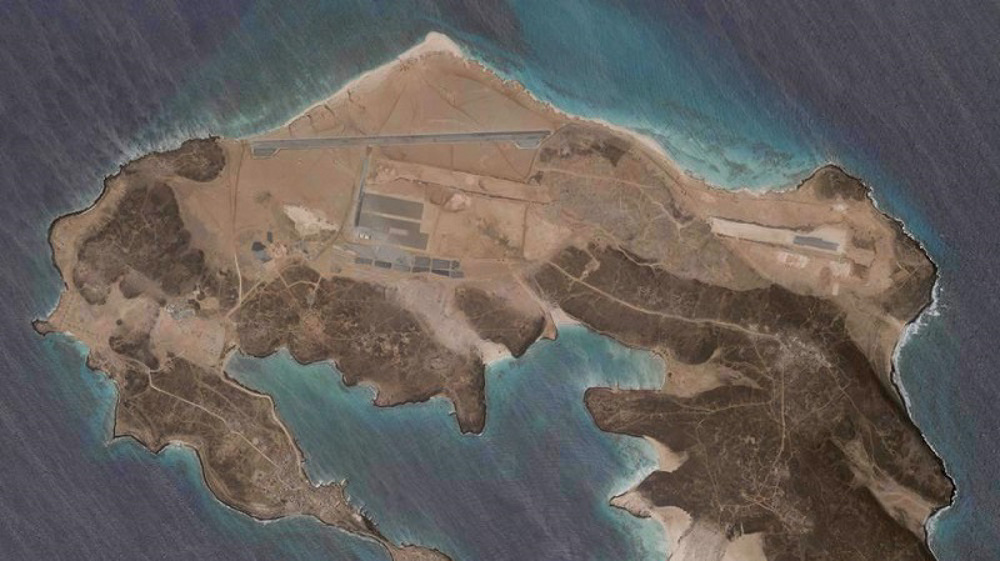

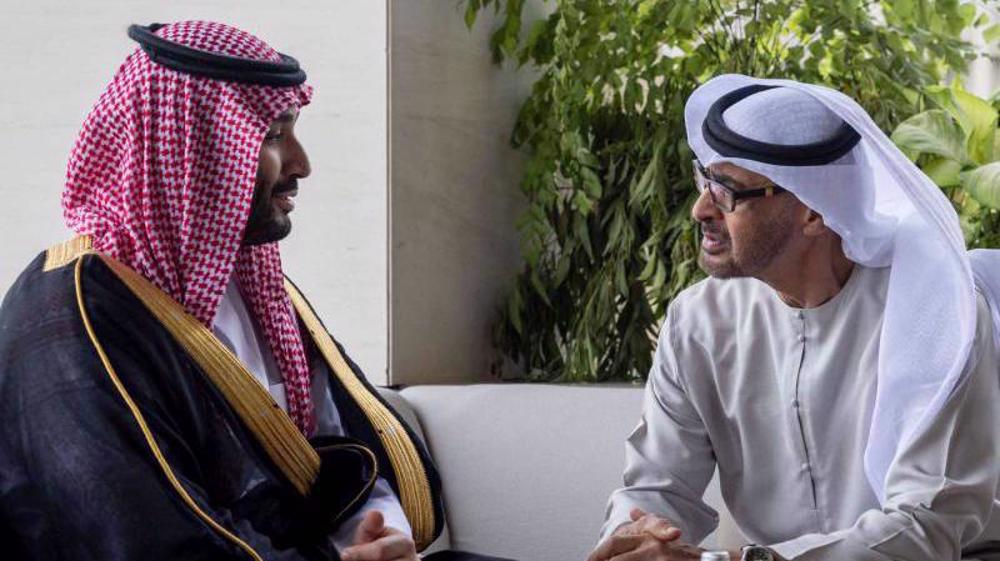
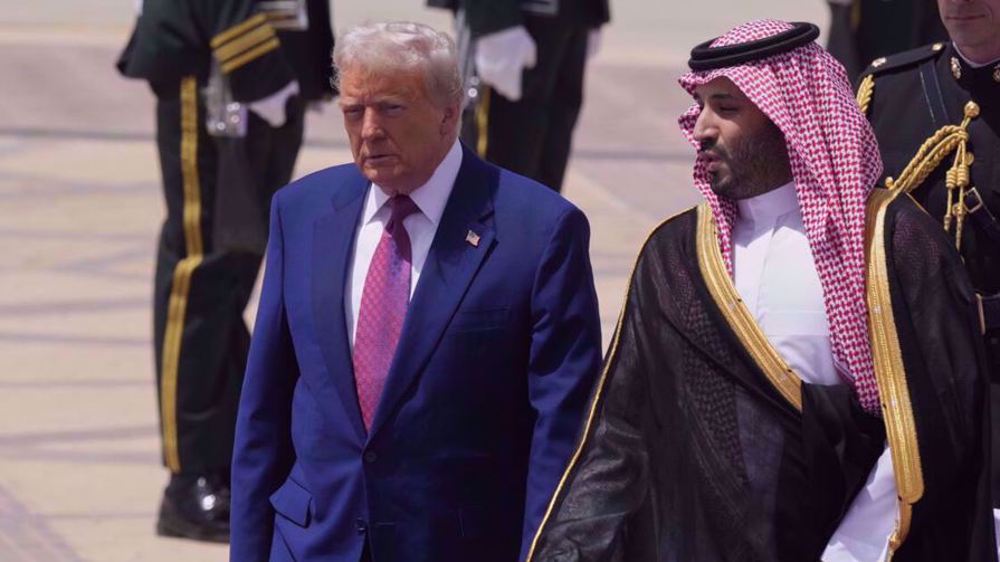



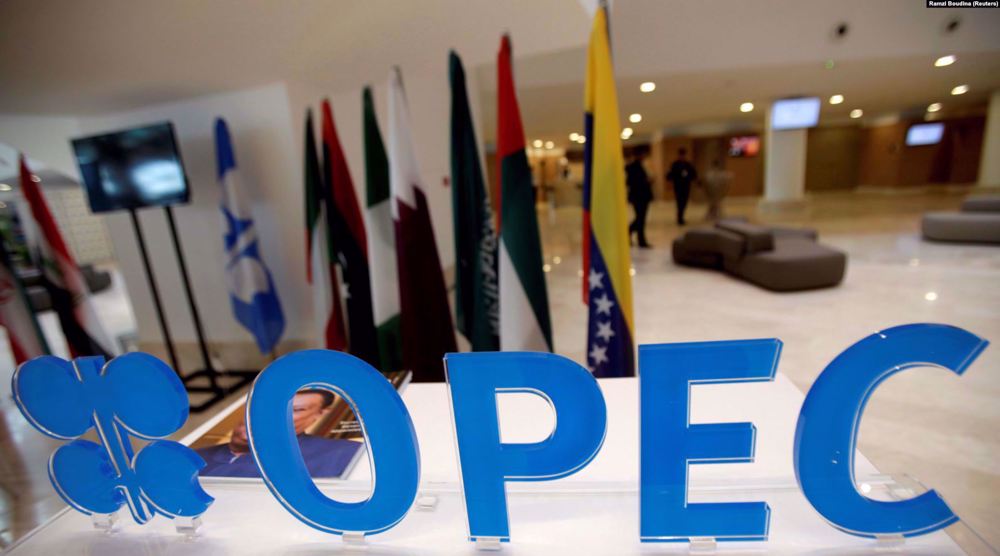

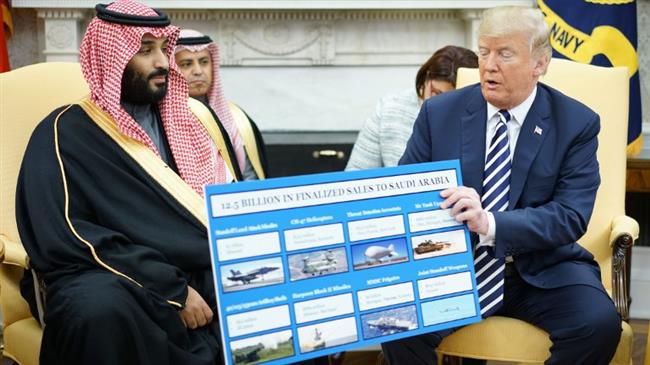

 This makes it easy to access the Press TV website
This makes it easy to access the Press TV website